Sussex Digital In Reach Team



















But who remembers the game ‘Snake’ that kept us all busy on our Nokia mobile phones in the 1990’s? Did you know that ‘Snake’ was first designed to be a video game back in 1976? Its original name of ‘Blockade’ was changed when popularity grew, and Nokia developed its own version and gave us the game we know and love, to play on the go today! widely today, and there is a of ‘Snake’ that players can even play on Google Maps. ted version looks like a bus p passengers, but there are y more ‘snake-like’ versions vailable, and it can even be ed on PlayStation and even in Virtual Reality! Snakes are everywhere!
We are delighted to annou we are now able to offe in-person


Starting January 2025, care providers in Sussex can benefit from free, in-person Data Security and Protection training for their frontline staff This unique opportunity is funded by the Digital Care Hub and designed to ensure care providers meet the requirements of the Data Security and Protection Toolkit (DSPT).
Why Take Part? - Data security and protection are essential in safeguarding sensitive information and building trust with those in your care The DSPT specifies that 95% of staff must complete annual data protection training, with a minimum assessment score of 80% required to remain compliant. This course, developed by the Better Security, Better Care programme, ensures that your team is equipped with the knowledge and skills to protect both residents and your organisation
Delivered by Experts Who Understand Adult Social Care - The course will be delivered by Tasha, Claire, and Nada from the Sussex Digital In-Reach Team. With over 25 years of hands-on experience each in adult social care, these trainers bring a deep understanding of the challenges & complexities of the sector Their extensive knowledge means they can provide practical, realistic solutions tailored to the needs of care providers.
Course Highlights - The training includes four essential modules:
● Module 1: Staff Responsibilities and People’s Rights - Learn about the responsibilities of staff in handling data and the rights of individuals to privacy and confidentiality
● Module 2: Sharing, Recording, and Securely Disposing of Data - Understand best practices for securely managing data throughout its lifecycle.
● Module 3: Preventing Fraud, Scams, and Maintaining Security - Gain practical tips to protect against scams, ensure device security, and safeguard paper records.
● Module 4: Managing and Responding to Data Breaches - Explore how to effectively manage data breaches, respond appropriately, and prevent future risks
At the end of the training, participants will complete a short assessment to demonstrate their understanding and meet DSPT requirements
Who Should Attend? - This course is perfect for frontline staff who handle sensitive data as part of their day-to-day work in care homes, home care settings, and other adult social care environments.
Why Now? - With the growing importance of cybersecurity and data protection in care, this is the perfect time to equip your staff with the tools and knowledge they need. And with no cost to your organisation, it’s an opportunity you won’t want to miss. Stay ahead of compliance requirements, enhance your team’s skills, and support better outcomes for the people in your care
How to Sign Up - Places are limited, so don’t wait! Contact Sussex Digital In Reach Team to reserve your slot.
Arrange your training sessions for January 2025 onwards by contacting us today. nada@westsussexpartnersincare.org
Our brand-new session on Accessible Technology and Problem Solving explores practical ways to improve accessibility and address everyday tech challenges in your care setting This 45-minute session is designed to provide you with the tools and strategies needed to make technology more effective and inclusive for everyone in your care.
The session aligns closely with Skills for Care e-learning, ensuring high-quality, relevant content tailored to the needs of adult social care
What You’ll Learn - This session will help you:
● Use technology to meet accessibility needs and ensure inclusivity
● Develop effective problem-solving strategies to minimise downtime and frustration.
Key Topics Include:
● Accessibility Tools: Explore features like speech-to-text, text-to-speech, easy-read options, and device customisations to support users with different needs.
● Voice-Controlled Devices: Discover how smart assistants can simplify tasks like setting reminders or answering queries.
● Digital Accessibility Standards: Learn how to choose or create resources that meet inclusivity guidelines
● Problem-Solving Essentials: Tackle common challenges like internet issues, system errors, and device glitches with practical tips and solutions.
Why Should You Attend? - By joining this session, you’ll gain actionable insights that lead to:
● Increased technology accessibility: Ensure all users residents, staff, and colleagues can benefit from available tools
● Reduced downtime: Quickly troubleshoot issues to maintain smooth operations.
● Enhanced digital skills: Equip yourself and your team to use technology confidently and effectively
Technology doesn’t have to be overwhelming. With the right knowledge and tools, you can make it accessible, practical, and beneficial for everyone in your care setting.
Don’t miss this opportunity to transform how your care setting uses technology
Accessible Technology and Problem Solving in Adult Social Care sday 22nd January: 2.30 - 3.30pm




Imagine having an extra pair of hands to help ease your workload someone to draft care plans, analyse data, and even design personalised schedules AI can be just that: your digital personal assistant, ready to take on repetitive tasks and reduce the burden on your team.
Our 45-minute session, Chatbot AI in Social Care, is designed to show you how to harness the power of AI to make your life easier while enhancing the care you provide
What You’ll Learn
Discover how to:
● Use AI to streamline admin tasks like report writing, care planning, and HR documentation.
● Analyse data to spot trends and risks, turning insights into actionable strategies
● Design resident-focused activity schedules and balanced menus effortlessly
● Build confidence in using AI ethically and securely, protecting sensitive data at every step.
Why It’s a Game-Changer
This session will give you the tools to let AI take care of the time-consuming stuff, so you can focus on what matters most providing outstanding care Whether it’s automating routine tasks or finding innovative ways to improve efficiency, AI is your go-to teammate
Key Topics Include:
● AI as Your Data Analyst: Spot patterns like falls or medication errors and create smarter action plans
● Care Planning Made Easy: Draft care plans and reports that align with relevant guidelines, for example NICE or CQC
● Service Design Simplified: Create tailored schedules and menus to enhance resident engagement
● Reducing Admin Stress: Save time with AI-generated drafts for HR and correspondence tasks
● Ethical AI Use: Learn how to use AI responsibly, safeguarding confidentiality and data security
Why Join Us? - This session is perfect for anyone looking to:
● Reduce admin workload and free up valuable time
● Deliver more person-centred, evidence-based care
● Stay ahead of the curve with innovative and ethical technology use
● Build confidence in integrating AI into daily operations
AI isn’t here to replace the incredible work you and your team do it’s here to make it easier Join this session and see how AI can become a trusted partner in your care setting, helping you work smarter, not harder.
Book your place now and discover the future of social care! Chatbot Artificial Intelligence - Practical Applications in Social Care day 30th January: 2.30 - 3.30pm



The Data Security and Protection Toolkit (DSPT) helps adult social care providers in England to check and improve how they keep people’s information safe. It is the official self-assessment tool for the care sector and is widely recognised by CQC, local authorities and the NHS.
The Data Security and Protection Toolkit (DSPT) is the officially-recognised self-assessment tool on data protection and cyber security for adult social care providers in England.
Background - The DSPT is a free, online self-assessment of health and social care providers’ data security and protection policies, procedures and processes It is not just about technology and digital records – it is about any information that care providers hold about any person – staff, clients, funders, partners or visitors – including paper records By answering a series of questions, care providers can demonstrate that they are compliant with data protection legislation, the health and social care data security standards, and good practice
The DSPT for social care is specifically designed for adult care providers Central and local government bodies, local authority and ICB commissioners, the Care Quality Commission and the National Data Guardian recognise it as the official tool to evaluate your compliance with legal requirements, data security standards and good practice If you have services funded by the NHS, for example under continuing healthcare, there is a contractual requirement to complete the DSPT every year All adult social care services in England, including residential and nursing homes, supported living, homecare, extra care, shared lives and day services, are strongly recommended to complete the DSPT It’s increasingly what local authorities, ICBs & the CQC will expect to see Benefits - By using the DSPT on an annual basis and reaching Standards Met you will be able to:
● reassure people who use services, their families & your staff that you are managing their information safely People expect you to share information with others who support them – but you must do this securely & legally
● answer the Care Quality Commission’s key questions and quality statements about how you manage data securely (see quality statement on Governance, Management and Sustainability)
● demonstrate you meet legal requirements including Data Protection Legislation & the Data Security Standards
● access key services such as NHSmail and shared care records
Access to shared systems and NHSmail - The DSPT opens up potential access to shared systems, as the toolkit reassures NHS colleagues that care providers are operating to the same data security standards as NHS bodies By completing the toolkit and achieving ‘Standards Met’, care providers can access the following systems: GP Connect, Local shared care records, Proxy access to GP records, Proxy access for medication ordering, National Care Records Service
NHSmail is a free, secure email system available to care providers NHS bodies require care providers to use secure email systems if they are communicating with them To access NHSmail care providers must reach ‘Approaching Standards’ or above on the toolkit
DSPT and Cyber Essentials - The DSPT covers all aspects of information governance including: paper records and systems; verbal disclosures of information; digital systems; cyber security; and the duty to share information to support someone’s care Cyber Essentials and Cyber Essentials Plus only cover cyber security issues The DSPT is free and is specifically designed for social care – Cyber Essentials is not Both tools are useful and compatible if a care provider has Cyber Essentials Plus, they can indicate this on their DSPT entry, and it will enable them to skip some questions If they reach Standards Met on the DSPT and they also have Cyber Essentials Plus, they can get to Standards Exceeded on the DSPT
Short guide which compares the DSPT, Cyber Essentials and Cyber Essentials Plus

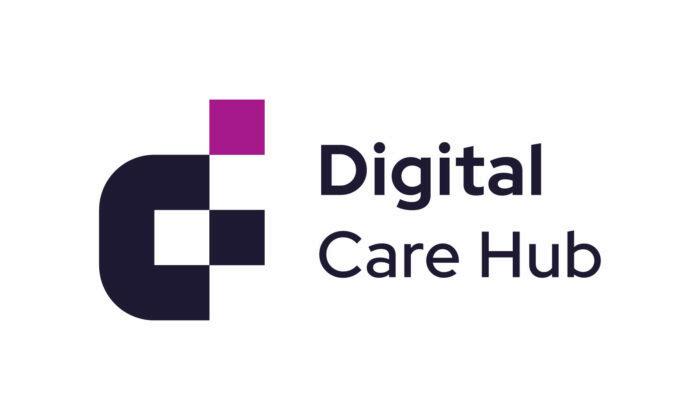


We are a dedicated brought together to assi digital in your care setti Get in touch today, or to find out more ab and how we sussexdigitalteam.co.uk





Republish your DSPT in your lunch hour - Thursday 16th January: 12.30 - 1.30pm
Republish your DSPT in your lunch hour - Wednesday 29th January: 12.30 - 1.30pm

If not, we can help you complete your DSPT by either attending one of our free online sessions, or we can even help you 1:1 by phone, Zoom call or a face-to face visit.
As Technology becomes more popular in the Care industry, it is important to ensure that you have the correct infrastructure in place. Here we have tools to help you assess your current systems and helpful resources to guide you when you need to make improvements.
Digital
This free, online self-assessment tool has been specially designed to help you understand your strengths as well as what might be blocking your way. Completing the questionnaire will provide evidence for future funding to be made available to social care providers like you across Sussex to support your digitalisation
This could mean funding towards fast broadband or WiFi coverage, falls prevention equipment, remote monitoring, EMAR, digital care planning system or staff training
We recommend that all care providers complete this 5 minute survey at least once per year. It has been designed to help you understand where you might need to make changes or upgrades to your existing digital infrastructure in order to support the growing number of digital technologies now being used in social care.




The right information. At the right time. In the right place. We are working towards a truly integrated health and care system. For that to work, we need our online systems to be able to talk to each other effectively, so clinicians have the right information to help them do their job well. Plexus Care Record connects health and care records for practitioners in Sussex, providing them with the right information at the right time. By connecting digital systems across GPs, hospital and community healthcare services as well as local authorities, Plexus allows practitioners to securely access and update relevant patient information as part of the shared health and care record anywhere anytime. You can read a full list of health and ganisations that shar information into and use the Plexus Shared Care Record here
Plexus Care Record - Sussex Health & Care (ics.nhs.uk)
Seeking 200 Care Homes in Sussex to Roll Out Shared Record - Plexus

We are excited to announce that we are looking for 200 care homes in Sussex to participate in the roll-out of Plexus, our shared record system. Plexus is continuously growing and developing, and in time, it will ensure that health and social care in Sussex are truly connected, providing you with all the information you need with just a click of your mouse.
Plexus is free for providers and includes data similar to GP Connect, with several additional features to enhance care coordination.
If you are interested in joining this initiative, please contact Nada for more details. Together, we can create a more integrated and efficient care system in Sussex.


What You'll Learn:
Nada Wakeford nada@westsussexpartnersincare.org

Plexus - Shared Care Record for Sussex
Tuesday 14th January: 11.00am - 12.00pm
Principles of Information Governance (IG):
● Grasp core IG principles, including confidentiality, data protection, and consent
● Understand the critical importance of safeguarding sensitive information in daily care work
Staff Training:

● Learn how to implement Role-Based Access Control (RBAC) in alignment with your Standard Operating Procedures (SOPs)
● Receive additional IG training, covering legal responsibilities in accessing health information and the importance of doing so only when directly caring for a service user
Reporting and Compliance:
● Understand the steps for reporting any inappropriate use of data
● Reinforce your knowledge through a short quiz at the end of the session
Patient Consent and Opt-Out:
● Educate yourself on patient rights concerning consent and opting out of the shared record system
● Learn how to sensitively handle situations when patients choose not to participate.
Handling Confidential Patient Information:
● Deepen your understanding of what constitutes confidential patient information and the importance of protecting it
● Explore scenarios that require extra care in sharing and managing sensitive information, including the use of NHS Mail
● Review procedures for reporting incidents or breaches in line with the Data Security and Protection Toolkit (DSPT)


Would you like to have valuable information before you commit to a new eMAR system?
Medication Training Company have compiled a ‘snagging’ list of things to know before you start. Sign up via the link to receive an email with the snagging list and a downloadable PNG as a reply.
8 things to look for (and avoid) in an eMAR system: https://reports.medicationtraining.co.uk/november-24
Training | Medication Training For Carers and Nurses
People who need care and support often require support with their medication.

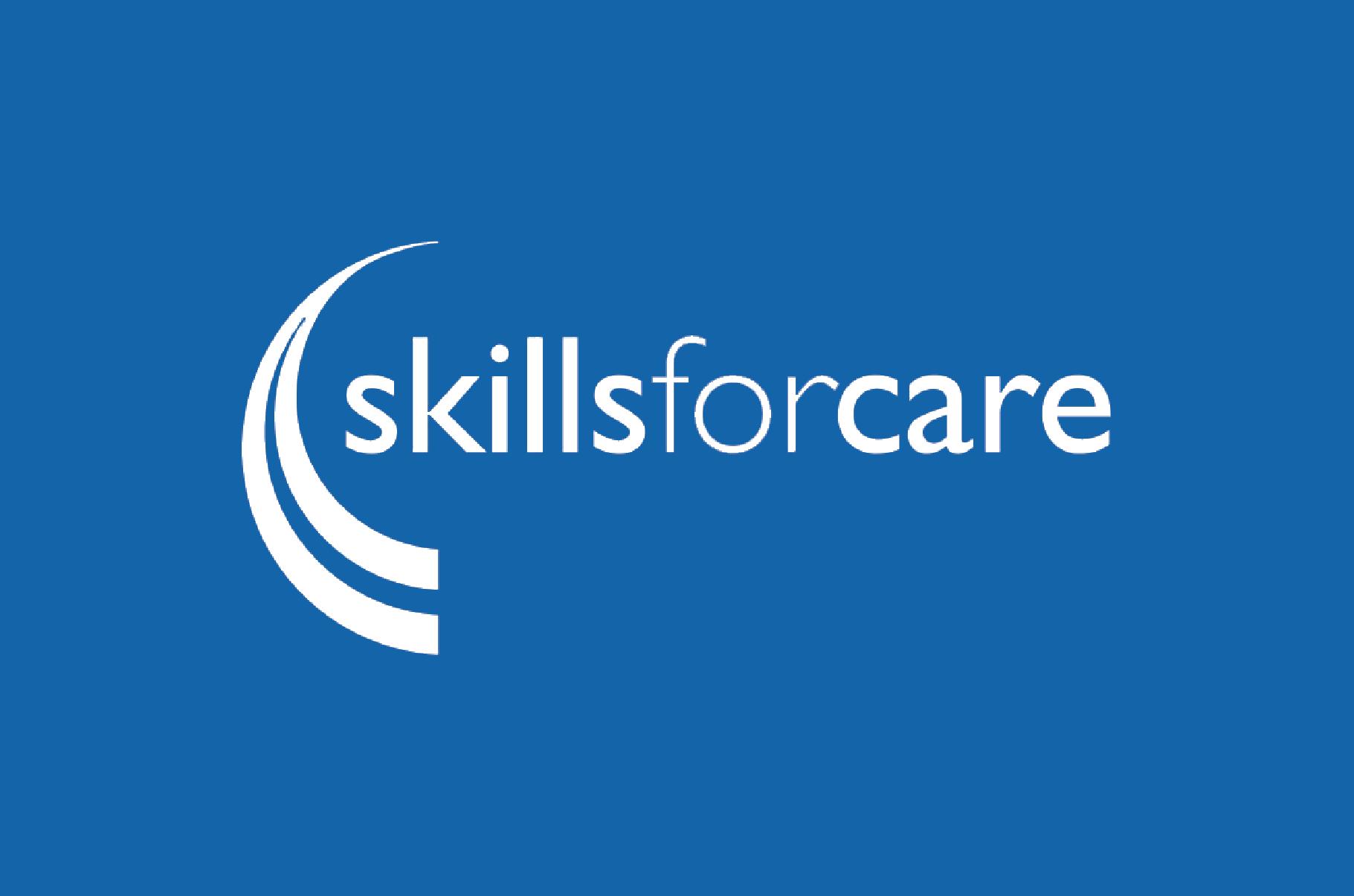
Adult social care services have a responsibility to ensure the proper and safe use of medicines, and that staff responsible for the management and administration of medication are suitably trained and competent.
Skills for Care urges all relevant social care employers to sign up to STOMP. STOMP aims to raise awareness about stopping the overmedication of people with a learning disability and/or autistic people.
Additional medication training resources- Following induction, staff responsible for the management and administration of medication will need to be suitably trained to ensure that they're competent, and their competence must be regularly reviewed.
The following resources can help you make decisions about your medication training
National Institute for Health and Care Excellence (NICE)
■ Managing medicines in care homes
■ Managing medicines for adults receiving social care in the community
■ Medicines management in care homes
NICE quick guides are easy ways to access key information on social care topics:
■ Giving medicines covertly
■ Effective record keeping and ordering of medicines
CQC's advice and information for regulated providers includes FAQs for different care settings, including administering medicines covertly, safe administration using feeding tubes, disposing of medicines and high risk medicines: Medicines: information for adult social care services
NHS England (formerly Health Education England)
NHS England (formerly Health Education England) have developed a collection of free medicines related training resources for non registered staff across the wider workforce: Training for non-registered medicines workforce
Medication


Outstanding Medication Management For Care Homes and Community Settings Masterclass

Date: Tuesday 18th March 2025
Time: 9:25am – 3:15pm
Delivery: Online
Cost: £354 per person or £250 per person for charitable and voluntary organisations. A group discount of 15% is also available.
Suitability: Managers & senior care staff who manage medicines in care homes & other social care settings
Facilitator: John Greene BSc (Hons) Pharmacy, a registered pharmacist with over 30 years' experience.
Course description:
'During this masterclass you'll learn how to manage and learn from medication errors. This course allows you to ensure that you and your team are managing medicines correctly, so the people who you support are kept safe. You'll also learn how to meet and exceed the latest regulatory and best practice requirements and gain top ratings from the CQC through the use of our targeted, in-depth audit tool.'
The course is split into two parts:
1) How to manage and reduce the risk from medication errors
● How common are medication errors?
● What is 'Just Culture'
● A focus on systems
● Capturing error data
● How the safest care providers achieve harm reduction
2) How to attain and maintain top ratings from CQC for managing medicines
● The top 12 medicines inspection areas targeted by the CQC
● How to achieve good or outstanding ratings, and stay out of requires improvement / inadequate
● An introduction to an exclusive medicines audit tool
If you would like to find out more, you can click here to download the course brochure

How to book:
The Medication Training Company are taking pre-bookings Follow the link: Masterclass Landing Page


A council is calling on the government to exempt care firms from a hike in National Insurance, saying it will lead to cuts to social care. East Sussex County Council and East Sussex Partners in Care (ESPiC), an alliance of care providers, are asking supporters to sign a national petition and an open letter calling on the government to make the exemption. The letter asks chancellor Rachel Reeves to either review the rise in employers’ contributions or give more money to councils to pay for it.
The county council and care providers warn the rise would have a severe impact on the ability to provide the best possible care to those in most need, including people with profound physical or learning disability, mental impairment or who are frail and elderly.
Mike Derrick, chair of ESPiC, said: “The care sector is already under the most intense pressure we’ve ever known. Costs are rising steeply, including from increases in the National Living Wage, and we calculate the increase in National Insurance contributions would slice up to another £2.8 million off what we’re able to invest in care facilities and the people we look after.
“We’re proud of the quality care our members provide but I can’t see how we could maintain those standards if we have to add another eight per cent to our costs. But that is what the government’s new increase would mean for us. We urge the chancellor to think again.”
Carl Maynard, cabinet member for Adult Social Care, said: “We arrange care for 8,000 people in East Sussex, most of it with independent providers who will be hit very hard by this increase. It’s inevitable that they will have to pass on some of this cost increase to what they charge us, and therefore on to the taxpayer locally
“The county council is already facing an almost impossible financial challenge – with a funding gap of £57 million next year. We’re already having to consult the public about significant possible savings to adult social care services and the situation will only get worse if the rise in NICs forces care providers to raise their charges further
“The government has tried to help the care sector with extra funding announced in the Budget, probably amounting to about £6.8 million for us in East Sussex. But the fact is that extra will be more than wiped out by this increase.
“It’s not too late for the government to change course. I would ask everyone to consider signing the petition and the open letter to the Chancellor which asks her to think again.”
The national petition can be signed online at https://petition.parliament.uk/petitions/700080
The letter to Rachel Reeves can be signed online at www.providersunite.co.uk/letter-to-chancellor/ sussexonlinenews-employers-tax-hikes-will-lead-to-social-care-cuts-council-warns


Proposals for the long-term funding & major reform of the social care system in England may not be delivered until 2028, sparking backlash from experts An independent commission into adult social care, beginning in April & chaired by Baroness Louise Casey, will prepare the ground for a National Care Service, a key Labour manifesto pledge. The first phase of the review, reporting in mid-2026, will identify the immediate critical issues facing adult social care & set out recommendations for effective reform & improvement in the medium term
The review will not make long-term recommendations, which focus on creating a fair and affordable social care system, for at least three years Any changes the government supports will take even longer to implement Care England chief executive Professor Martin Green said: “This announcement acknowledges the decade-long crisis in social care, but it risks becoming yet another report that gathers dust while the sector crumbles “Care providers are doing their utmost to deliver essential care to society’s most vulnerable, yet the challenges they face only keep increasing “While the sector has demonstrated resilience, its repeated calls for help have been ignored, as the Government continues to prioritise reforming the NHS to achieve goals only a fully functioning adult social care system could deliver This commission will simply confirm what we already know – how many more reports must we endure before action is taken?”
Sarah Woolnough, chief executive at The King’s Fund, has urged the Government to accelerate the timing of the second phase of the commission. She said: “The current timetable to report by 2028 is far too long to wait for people who need social care, and their families. The most fundamental issue to reforming social care is addressing the very tight means test which effectively limits state support to those with the lowest assets and highest needs ” Pointing to well-known problems such as workforce pay and conditions, catastrophic costs, patchy care quality, and a “postcode lottery” of access, she said: “The issues and the potential solutions to this are clear and do not require years to consider.”
Caroline Abrahams, charity director at Age UK, said: “It’s imperative that the current administration breaks the mould and puts the commission’s recommendations fully into practice” Abrahams added the fact funding for social care will not be addressed until the second phase of the commission is a “major concern, partly because today’s older people do not have time on their side but also because who knows what the state of the world, our politics or our economy will be by then”. Successive governments have promised to fix social care but all have failed It is now almost 15 years since Sir Andrew Dilnot recommended a cap on care costs to meet the challenges of an ageing society, but his reforms were never implemented What was The Dilnot Report?
Related video: Health Secretary announces first steps towards National Care Service (Daily Mail)
Health Secretary Wes Streeting said the plans announced today “will help to modernise social care, get it working more closely with the NHS, and help deliver our Plan for Change.” He said: “But our ageing society, with costs of care set to double in the next 20 years, demands longer term action The independent commission will work to build a national consensus around a new National Care Service able to meet the needs of older and disabled people into the 21st century.” Opposition parties have been invited to take part in the commission with the aim of building a cross-party and national consensus. Liberal Democrat Leader Sir Ed Davey said the commission was “long overdue”
Meanwhile, more investment has been committed to the Disabled Facilities Grant, which allows people to apply for funding to carry out work such as widening doors, improving access, installing ramps or stairlifts, or building an extension. The £86m boost for this financial year is on top of the £86m announced at the Budget for the next financial year and brings the annual total to £711m About 7,800 more elderly and disabled people could benefit, ministers estimate Under the Government’s proposals, as revealed by The i Paper on Thursday, care workers will be better supported to take on further duties to deliver health interventions, such as blood pressure checks, meaning people can receive more routine checks and care at home.
For the full story, follow the link: Labour unveils plan for social care – but experts warn it will take too long


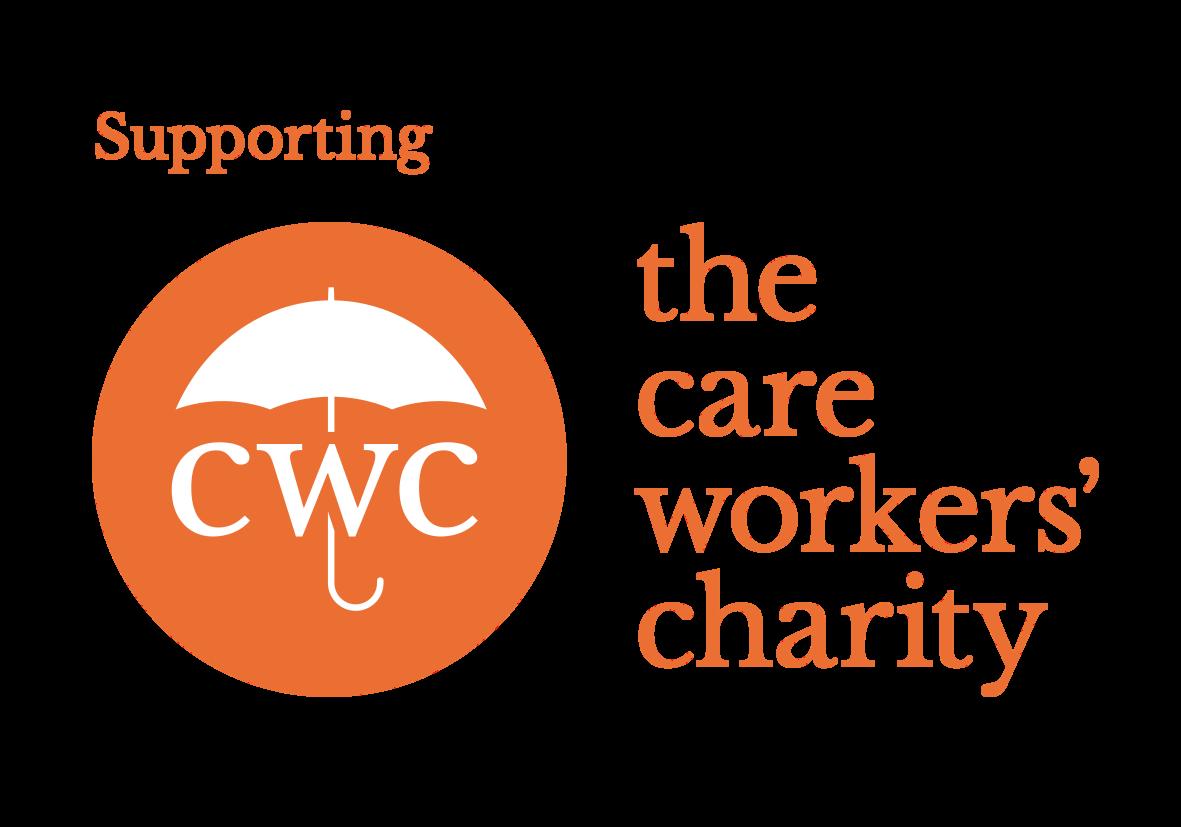
More Responsibility for Care Workers: But Will Pay and Support Follow?
The Care Workers Charity voices apprehension about the responsibilities being placed on care workers without extra pay or support. Following the government announcement on immediate reforms for adult social care alongside the establishment of a dedicated commission to explore the future of the sector.
Karolina Gerlich, CEO of the Care Workers’ Charity says: “Once again, care workers are being asked to take on additional responsibilities, with health-related tasks including routine health checks, wound care, administering insulin for diabetes patients and supporting those with mental health to a crisis plan. My concern is that care workers will be expected to do more without adequate support or additional pay. We know that care workers are more than capable of undertaking delegated health tasks, but this must come with proper training, fair pay, and clinical supervision
It’s time we had a serious conversation about what social care is and the vital role care workers play. Social care should not simply be treated as an extension of the NHS, especially when the care sector lacks the level of funding that the NHS receives. There also needs to be greater acknowledgement that care workers are already performing complex health-related tasks
During a recent roundtable discussion, care workers highlighted their roles in providing end-of- life care, catheter care, PEG care, and stoma care. They also emphasised their contributions to preventative healthcare, such as supporting healthier lifestyles by helping individuals quit smoking or reduce alcohol consumption Additionally, care workers play a crucial role in reducing the need for hospitalisation and helping people reintegrate into their communities following medical treatment These vital contributions often go unrecognised
Participants at this and subsequent roundtables with a cross-section of care sector stakeholders also cautioned against reducing social care to health-related tasks alone They stressed the importance of valuing social care as a distinct sector in its own right; with one participant saying, “The NHS saves lives, while social care helps people them”; A narrow focus on health tasks risks detracting from the unique and critical role social care plays in enhancing quality of life for individuals and communities It is essential to celebrate and value social care as a sector that not only complements the NHS but as important and valuable in its own right ”

Becky Morton - Political reporter 11 December 2024

The National Audit Office (NAO) said the figure had increased by £100m since 2018/19. Charity Carers UK said the report was "further evidence of a broken system that is failing unpaid carers".
The government launched an independent review of overpayments in October, after some carers were forced to pay back thousands of pounds leaving many in financial hardship. The Department for Work and Pensions (DWP) paid £3.7bn in Carer's Allowance to more than 900,000 claimants last year, according to the NAO report. If someone spends at least 35 hours a week caring for someone with an illness or disability they may be eligible for the allowance, which is currently £81.90 a week. To qualify, someone must not earn more than £151 per week. The threshold will rise to £196 a week from April. If a carer earns just a pound above this figure there is no taper rate and they are no longer eligible for any payment. The NAO said this created a "cliff-edge", meaning significant overpayments can build up quickly Claimants are required by law to inform the DWP promptly if their circumstances change. But the department has faced criticism for failing to prevent overpayments, despite its systems flagging when a claimant is earning too much.
Some carers have told the BBC they were unaware they had exceeded the threshold until being informed years later, when the sums had run into thousands of pounds. Claimants earning above the permitted limit made up 58% of new overpayment cases last year. Other reasons for overpayments include the claimant no longer providing care, for example if the person being cared for has died. Some 136,730 people had outstanding overpayment debt last year, an increase of 71% compared with 2018/19.
However, the NAO said the average value of new overpayments identified by the DWP had fallen in the past 4 years, suggesting they were being identified earlier The DWP seeks to recover all benefit overpayments where it has a legal basis to do so, unless it would cause financial hardship or would not be cost effective. The department can also refer a case for prosecution if it considers an overpayment was fraudulent, which happened in 54 cases last year.
As an alternative, it can offer an "administrative penalty" of £350 or 50% of the overpayment, whichever figure is greater, up to a maximum of £5,000. The number of administrative penalties has fallen significantly in recent years, from 774 in 2018-19 to 75 in 2023-24. Meanwhile, there has been an increase in the use of civil penalties of £50 - with 30,129 imposed last year, up 50% from 2018-19.
The government-ordered review, which will look at how to reduce the risks of overpayment and how to support carers who have already accrued debts, is due to report back by next summer. Helen Walker, chief executive of Carers UK, said any recommendations from the review should be implemented as soon as possible. Dominic Carter, director of policy and public affairs at Carers Trust, called for a "complete overhaul" of the allowance system, describing it as "overly complicated" and "outdated". Minister for Social Security and Disability Sir Stephen Timms, said: "This report sets out the scale of the challenge and underlines the importance of our independent review into overpayments so we can make the system fairer for thousands of selfless carers. "Carers deserve to be supported, which is why we are boosting the earnings threshold, benefiting more than 60,000 people, while our review will get to the bottom of the problem so we can protect carers from unfair debt and protect taxpayers' cash."
Lib Dem leader Sir Ed Davey said the issue had caused "misery and distress" and called for ministers to halt repayment demands until the review had finished. "I'm glad that campaigners were able to secure a review into this scandal, but it cannot be right to keep pursuing tens repayments while that review does its work," he said.


For the last 50 years, whenever you’ve bought something in a store, a barcode will likely have been scanned at the checkout. However, all this could be set to change in set to be ditching ‘old-fashioned’ barcodes & replacing them with modern
This is according to GS1, the world’s only authorised provider of Global Trade Item Numbers (GTINs) – the unique number that powers each and every barcode. They claim the new codes are capable of holding much more information about products, such as ingredients, possible allergens and could even provide recipe suggestions for food items. Currently, traditional barcodes are only able to store seven specific pieces of information – the name of the item, the manufacturer, the type of product it is, its size, colour, weight and the price.
Anne Godfrey, chief executive of GS1 UK, claims almost half of British retailers have already updated their checkouts to prepare for the use of QR codes. QR codes have been in use for some time generally in shops and restaurants, but became increasingly more popular during the pandemic when everyone had to scan them in order to order from menus in restaurants or bars. And they’ve recently started cropping up more frequently on product packaging to provide additional information to shoppers, or link to websites. Speaking to Mail Online, Anne said: ‘Very soon we will say goodbye to the old-fashioned barcode & every product will just have one QR code that holds all the information you need. The old barcodes do what they say on the tin, they go beep, tell you the price & get you out of the store. But today’s consumers want much more information about the products they buy.’


barcode expert previously shed more light on QR codes and the ‘greater they will give customers when marking the 50th birthday of the code. ‘By combining two of the most important inventions of the 20th y, the internet and the barcode, the next generation of barcodes will connect physical products to the digital world. This allows consumers to access virtually limitless, real-time information about the products they buy scan of a smartphone – helping them make more sustainable, safer smarter purchasing decisions,’ she told Metro. tain supermarkets are thought to have started using the new codes eady, including Tesco and Morrisons, but Anne warned that other retailers soon have to make the upgrade or risk ‘getting left behind’.
But it’s not just the UK that will see them introduced, as big brands around the world are getting on board with the changes too, including PepsiCo, Amazon, & Walmart. It’s predicted that a full international roll-out of the new codes will be complete within 2 years, so we’ll likely be saying farewell to traditional barcodes in 2027.
‘We won’t celebrate the death of the humble barcode, but it is time to say a long goodbye to it,’ Anne said. And if you were concerned the changes to barcodes might cause issues for shops and customers, you don’t have to worry too much, says Theresa Lindsay, the group marketing director at consumer finance brand, Novuna. This is because we’ve already overcome two of the main challenges of the change -consumer reaction and the cost of implementation for retailers. ‘The pandemic fast-tracked the adoption of digital technology, with customers now far more comfortable scanning for information quickly. We see this as an evolution that will aid customers and help brands learn from the real people who shop on the high street,’ Theresa explains to Metro.
She continues to say there are additional benefits to introducing QR codes, especially for those with disabilities. ‘These new barcodes also address accessibility issues for many. For example, visually impaired individuals can scan QR codes and receive audio assistance. QR codes will be a more powerful tool for consumers to decide whether a product is right for them, creating greater trust and communication between brands and customers’.

Follow the link (or the QR code!) for the full article:
Major change to supermarket checkouts as 50-year shopping feature is being axed

Digital Care Hub is hosting an event where they will be joined by guest speakers to support you through the transition from analogue to digital, which all care settings will have to do.

The switch over from analogue to digital is inevitable The deadline for transitioning from analogue to digital telecommunications networks is December 2025 The transition of telecommunications infrastructure and the adoption of digital technologies in social care is something that can’t escape the sector and this webinar will help prepare organisations to be ready before the changeover becomes non-returnable
Care homes will need to ensure they have a suitable broadband and telephony service in place and activated prior to the switchover to avoid a complete loss of phone service.
It is imperative that care homes are prepared well in advance due to infrastructure degradation, reduced engineers and geographical areas migrating earlier than others. If you have other systems connected to your phone line, such as intruder & lift alarms, telecare systems, Emergency Red Phones. Epos machines, CCTV, or some half-hourly electricity meters, then they’ll stop working too.
This session will cover:
● The switchover explained
● Recent update announcements
● Implications for your care home
● What is replacing this and the benefits
● Ensuring you are prepared
● Questions from the care sector
● and much more
These sessions have been designed for adult social care providers in England and are aimed at people who make decisions about the use of technology in care services This might include:
● Owners
● Registered Managers
● Nurses
● Senior Care Staff
● Domiciliary Care
● Administrators
● IT Professionals
● Quality & Compliance Leads

In addition, we welcome attendance from people who support adult social care providers with digitisation – this includes ICB digital leads, local and national care associations, commissioners, technology suppliers and consultants


Join the session: Wednesday 15th January 2.00 - 3.30pm

Adopting Digital Social Care Record (DSCR) will help you enhance the quality of care you provide, and streamline your operations. Book a demo from one of the Approved Suppliers below:
Applications for 2024 Grants have now closed and available funds have been allocated.
Benefits of Implementing a Digital Social Care Record:
●Efficiency at Your Fingertips: Capture information easily at the point of care, allowing more time for what matters most—caring for your clients
●Rapid Response: Support staff can react swiftly to changes in clients’ needs, ensuring timely and effective care1
●Secur eguarding client con


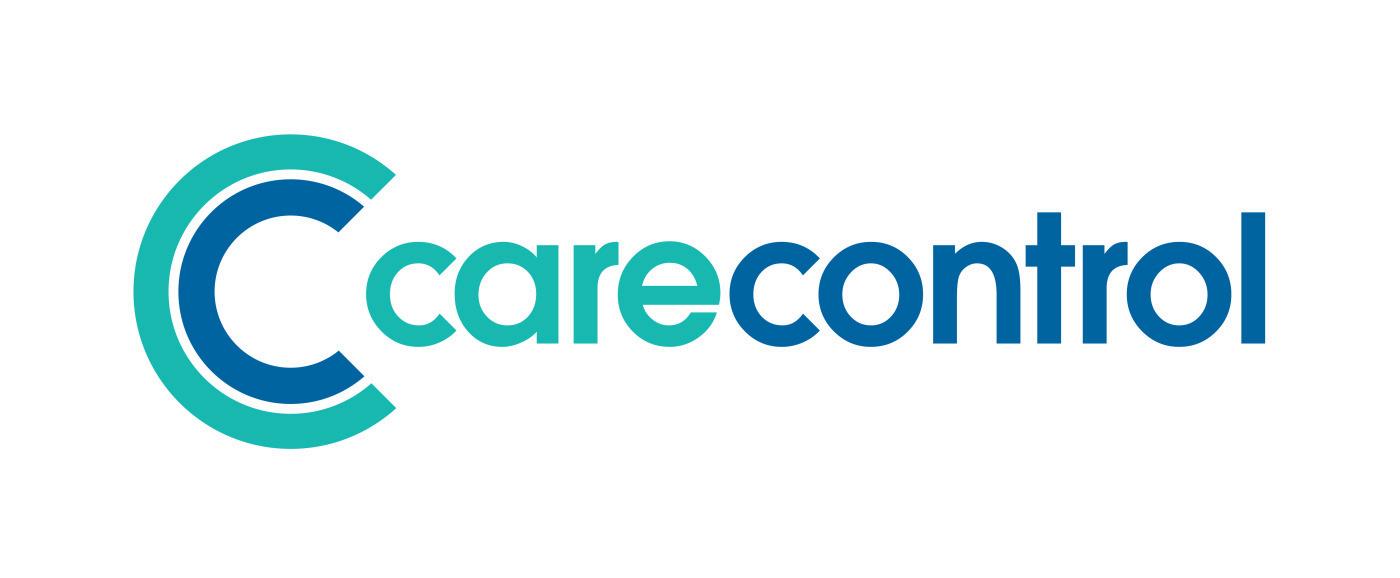


●Saf accessible to a digital care record system.






Check out the Assured Suppliers list below and book your demonstration to see how they can positively impact your workplace.
Choosing the right solution for your Digital Care Records
Once you have decided to start using digital social care records (DSCRs), you will need to find the right software solution for your organisation. There are many different options available, so it’s important to take time to consider your needs thoroughly.
Working out what you need When choosing the right DSCR for your organisation, you need to decide what the system needs to do.
Think about what’s essential and what’s optional. All assured suppliers offer basic features, so it’s important to consider what additional features you might need.
See the full list of Assured Suppliers: View the assured solutions list
To find out more about one of the digital social care record systems, visit this YouTube channel to watch a 30 minute demonstration of each solution.






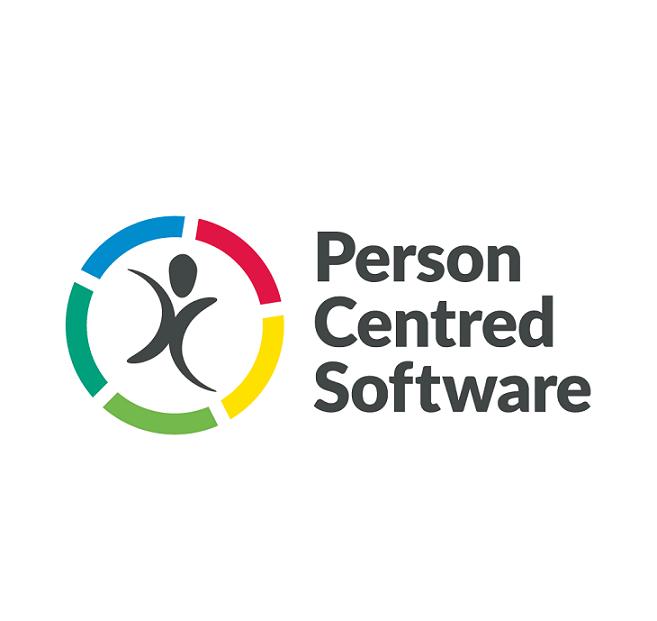


We would love to know your experiences with migrating from one DCSR to another.
● Has the transition been easy?
● Has your old DCSR provider been helpful?
● Was resident information from your old provider, presented in a compatible format for your new provider?
● Have you felt supported by your new supplier with the set up?
Please get in touch and we can use this information to help other Ca P id take a smooth path migrating to a new DCSR.
Email us on: nada@westsussexpartnersincare org

Over 82% of care providers in Sussex already use digital social care records, making a huge difference for managers and staff. If you haven't transitioned yet, what's stopping you?
Time and money are common barriers, but the Digital Social Care programme can help The Adult Social Care Digital Transformation Fund is available this year to cover costs, and our 'Clock is Ticking' campaign provides guidance on securing funding and choosing the right solution. Visit Digital Social Care Records (sussexdigitalteam.co.uk) for more details and local support.

rds save time and money, streamline processes, and improve care quality us, your local team, for help and act now before the funding deadline. digitising your care planning today and experience the benefits.


Protect your organisation, whatever its size, against the most common cyber threats.

Help secure your business - Most cyber attacks are basic - the digital equivalent of a thief trying your front door to see if it’s unlocked Cyber Essentials helps you bolt your door against the most common cyber attacks What is Cyber Essentials? - Cyber Essentials is a Government-backed certification scheme that helps keep your organisation’s and your customers’ data safe from cyber attacks. The NCSC recommends Cyber Essentials as the minimum standard of cyber security for all organisations With our official Cyber Essentials Delivery Partner IASME, our nationwide network of assessors and advisors can help you get certified.
7.7m cyber crimes were experienced by businesses over the past year. That’s around half of all businesses in the UK. Don’t be next.


Who is Cyber Essentials for? - Cyber Essentials can help every organisation – from micro businesses to large corporations – guard against the most common cyber attacks. If you have digital assets or store any data, putting the Cyber Essentials controls in place can help you keep it safe. Cyber Essentials - NCSC GOVUK Find out more FREE EVENT: ine Safety and Cyber Security in Adult Social Care
Tuesday January 21st 2025: 2.30 - 3.30pm Cyber Security In Your Care Setting - A Risk Worth














Plexus - Shared Care Record for Sussex
Tuesday 14th January: 11.00am - 12.00pm
NHS Mail - Multi Factor Authentication (MFA)
Tuesday 14th January: 2.30m - 3.30pm
Practical IT Skills Workshop - IT Systems and Devices
Wednesday 15th January: 2 30 - 3 30pm
Republish your DSPT in your lunch hour
Thursday 16th January: 12.30 - 1.30pm
NHS Mail - Multi Factor Authentication (MFA)
Thursday 16th January: 2.30m - 3.30pm
Online Safety and Cyber Security and Adult Social Care
Tuesday 21st January: 2.30 - 3.30pm
Accessible Technology and Problem Solving in Adult Social Care
Wednesday 22nd January: 2.30 - 3.30pm
Communicating through Technology
Tuesday 28th January: 2.30 - 3.30pm
Republish your DSPT in your lunch hour
Wednesday 29th January: 12.30 - 1.30pm




Chatbot Artificial Intelligence - Practical Applications in Social
Thursday 30th January: 2.30 - 3.30pm


Join our Sussex Digital In-Reach Team Facebook gr
We will keep you up to date variety of topics, such as the the news from CQC, discussions, advice, training and up to date information designed for Sussex Care staff and managers.




We would love to have your feedback. Whether it’s good or bad, please drop us a line with how you think we’re doing.
Do you have any training ideas or needs we can help with, are there any topics you would like covered in our newsletter or social media posts? Email us to tell us your thoughts. support@sussexdigitalteam.co.uk

Nada Wakeford nada@westsussexpartnersincare.org
Brian Roberts brian@sussexdigitalteam.co.uk
Sarah McNally sarah@sussexdigitalteam.co.uk
Claire Badzek claire@sussexdigitalteam.co.uk
Natasha Fowler natasha@sussexdigitalteam.co.uk
Georgie Ind georgie@sussexdigitalteam.co.uk
Sam Harper sam@harperdigitalskills.co.uk
Or phone us on 07860 630063 www.sussexdigitalteam.co.uk




